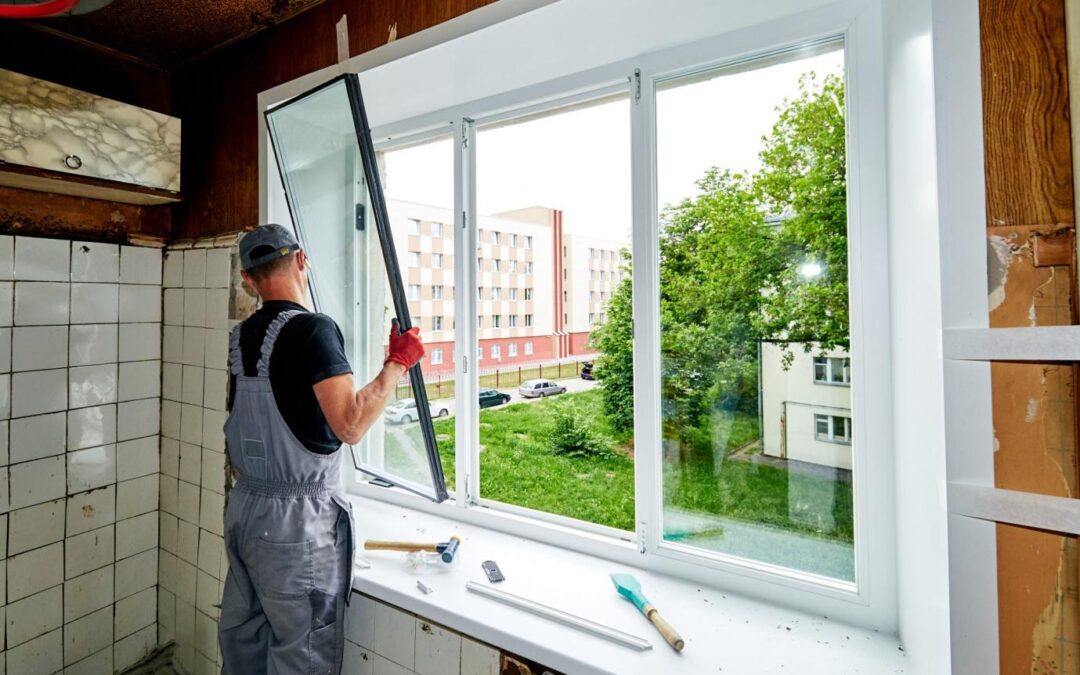Windows play a crucial role in maintaining your home’s comfort, energy efficiency, and overall aesthetics. However, over time, windows can wear down, become less effective, or develop issues that can negatively impact your living environment. Knowing when to upgrade your windows is essential for ensuring a comfortable, efficient, and attractive home. In this blog post, we will explore the signs that indicate you need window replacement and provide guidance on when to make this important investment.
Signs That You Need Window Replacement
There are several key indicators that suggest it’s time to replace your windows:
Drafts and Air Leaks
One of the most obvious signs that your windows need replacement is the presence of drafts or air leaks. If you feel cold air coming in through your windows during the winter months or warm air during the summer, it’s likely that your windows are no longer providing adequate insulation. This can lead to increased energy consumption and higher utility bills.
Difficulty Opening or Closing
If your windows are challenging to open or close, or they frequently get stuck, it’s a sign that the window’s components have deteriorated. This can be due to age, warping, or damage to the window frame or hardware. Difficulty operating your windows not only impacts their functionality but can also pose a safety risk in the event of an emergency.
Condensation Between Glass Panes
Condensation forming between the glass panes of double or triple-pane windows indicates that the seal has failed, allowing moisture to enter the space between the panes. This can reduce the window’s insulating properties and lead to additional issues such as mold growth or rot.
Noticeable Damage
Visible damage to your window frames, sashes, or glass can compromise the window’s performance and your home’s security. Examples of noticeable damage include cracked or broken glass, rotting or warped wood frames, or peeling paint. In some cases, minor damage can be repaired, but more extensive damage may necessitate window replacement.
Increased Noise Pollution
If you notice an increase in noise pollution from outside your home, it could be a sign that your windows are no longer providing adequate sound insulation. Upgrading to windows with better soundproofing features, such as double or triple-pane glass or laminated glass, can help reduce exterior noise and create a quieter living environment.
Factors to Consider When Deciding to Replace Your Windows
When determining whether it’s time to replace your windows, consider the following factors:
Age of Your Windows
The age of your windows is an important factor in deciding whether to replace them. Most windows have a lifespan of 15-20 years, depending on their materials and quality. If your windows are nearing the end of their expected lifespan, it might be time to consider upgrading to newer, more energy-efficient models.
Energy Efficiency
If your windows are single-pane or have poor insulating properties, replacing them with energy-efficient windows can provide significant savings on your heating and cooling costs. Look for windows with the ENERGY STAR® label, which indicates they meet strict energy efficiency guidelines set by the U.S. Environmental Protection Agency (EPA).
Return on Investment
Window replacement can be a substantial investment, but it can also yield a high return on investment (ROI) in terms of increased property value, improved energy efficiency, and enhanced curb appeal. Consider the potential ROI when deciding whether to replace your windows.
Tips for Successful Window Replacement
If you decide that window replacement is the right choice for your home, follow these tips for a successful project:
- Choose Quality Materials: Invest in high-quality windows made from durable materials, such as vinyl, fiberglass, or wood, to ensure long-lasting performance and minimal maintenance.
- Select Energy-Efficient Features: Opt for windows with energy-efficient features, such as double or triple-pane glass, low-E coatings, and insulating frames, to maximize the benefits of your window replacement.
- Work with a Professional: Hire a reputable, experienced window contractor to ensure proper installation and a high-quality result.
Recognizing the signs that it’s time to replace your windows is essential for maintaining a comfortable, efficient, and attractive home. If you notice drafts, difficulty operating your windows, condensation between glass panes, visible damage, or increased noise pollution, it may be time to consider window replacement. By taking into account factors such as the age of your windows, energy efficiency, and return on investment, you can make an informed decision about when to upgrade your windows. With quality materials, energy-efficient features, and professional installation, your new windows can provide lasting benefits and enhance your home’s comfort, value, and appeal for years to come.

